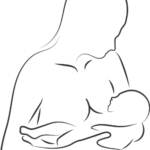Normal Newborn Breathing Patterns If you have seen your newborn’s breathing as quick or a bit irregular, you wonder if it is the normal breathing of your baby. The answer is most likely yes. Just bear in mind that newborns have their peculiarities and uniqueness in peculiarities with their breathing patterns. What to you may present as bizarre or even alarming almost certainly is perfectly normal for your newborn.
While all of these things are normal for your baby to have, let alone sounding stuffy in the nose, including getting hiccups with noisy breathing habits, it’s important to listen to the way that your baby is breathing. You’re probably fully aware of your baby’s breathing habits and what seems normal for him or her. However, if it does frighten you at what you see, don’t be shy to ask a provider of health care. You can eventually determine for yourself just what is considered normal and what isn’t, being able to catch early signs of any trouble that does come about.
Loud and Rapid Newborn Breathing Rate
Don’t be alarmed or shocked if your baby seems to be a noisy breather. In the first few months of life, infants can breathe only through their noses and are thus likely to produce all kinds of sounds. These range from snorts and grunts to gurgles and whistles with every in and out breath. At times, your new infant may also appear as if he breathes at a fairly high rate.
This noisy breathing should not necessarily be alarming. Notice signs of distress in breathing. 1 If warning signs are present, contact your health care provider immediately.
Warning Signs and Symptoms
Call 911 if you observe any of the following warning signs and symptoms in your baby:
Becomes blue all over or in areas that generally should have more blood running through them, such as the lips, tongue, and vagina. While the hands and feet are usually bluish because of the immaturity of a baby’s circulatory system, if other areas are looking blue, then immediate care is a necessity
Ix significantly increased the rate of breathing which is higher than the average of 60 breaths per minute
Struggles to breathe, which can be spotted by the nostrils persistently flaring and the chest retracting unusually
Is feeding poorly or has no interest in eating
Is lethargic or excessively sleepy
Frequent Sneezing in Newborns
Some parents take their baby home and see him or sneezing constantly, so they immediately assume that their baby must be allergic to the family pet. Be reassured that pet allergies, or colds for that matter, are unlikely causes of sneezing in those early weeks.
Breathing through the nose alone means every particle of air touched lands in the body. Because these openings are so tiny in babies, the body is often subjected to the sneezing needed for the elements to be expelled.
When your baby is sneezing quite often and more serious conditions exist such as frequent vomiting, diarrhea, wheezing, and colic, your baby may be allergic to the formula that you are giving to him. Bring the concern up with the doctor, who may suggest you switch to a hypoallergenic formula.
Periodic Breathing in Newborns
When your baby sleeps, you’ll hear them experience what’s called periodic breathing. Sometimes you’ll see your new little baby breathing very quickly, now slowly, sometimes even having short pauses then it seems that they’re not breathing at all for a few seconds. Many newborns even snore.
This periodic breathing pattern is usually perfectly normal and part of typical newborn development. Your baby should grow out of this as they age.
Also Read : Should You Use a Baby Walker?
When to Call Your Healthcare Provider
If your baby shows any of the following signs there may be something more than periodic breathing going on. Seek immediate medical attention with the following:
Breathing too fast or too slow
Nostril flaring with every breath
Grunting while breathing
Turning blue
Deeper breaths and ribs stick out
False “First Cold” in Infants
It truly is not unusual for your baby to have their “first cold” early on. That tiny nose can surely get itself in big trouble with all that it can accumulate, like lint, fuzz, spit-up, and other gunk. It probably bothers you more than it bothers your baby, and there may be no need to “help” them clear things out.
Hiccups in Newborns
However, if you strongly feel that your child needs assistance to breathe clearly, there are some steps to take. Make sure there’s no dust or pet hair in his nursery, maybe use saline drops, and if really needed, try a nasal aspirator. But first, ideally, you should CALL your healthcare provider.
Though, if your baby has a stuffy nose but any other symptoms, they might really have caught their first cold. Here’s what to look out for: fever, coughing, runny nose, watery eyes, and swollen lymph nodes.
The baby hiccups commonly occur because a baby would swallow air while feeding or might suddenly experience a warm stomach. In both cases, one need not worry, as they will pass on their own. Sometimes hiccups result from a condition called.
GER is unusual and tends to resolve without treatment in 95% of premature babies. However, if your baby looks like they are having serious GERD by showing symptoms such as poor weight gain, extreme irritability, and consistent coughing, it’s time to get in touch with the health care provider immediately.










